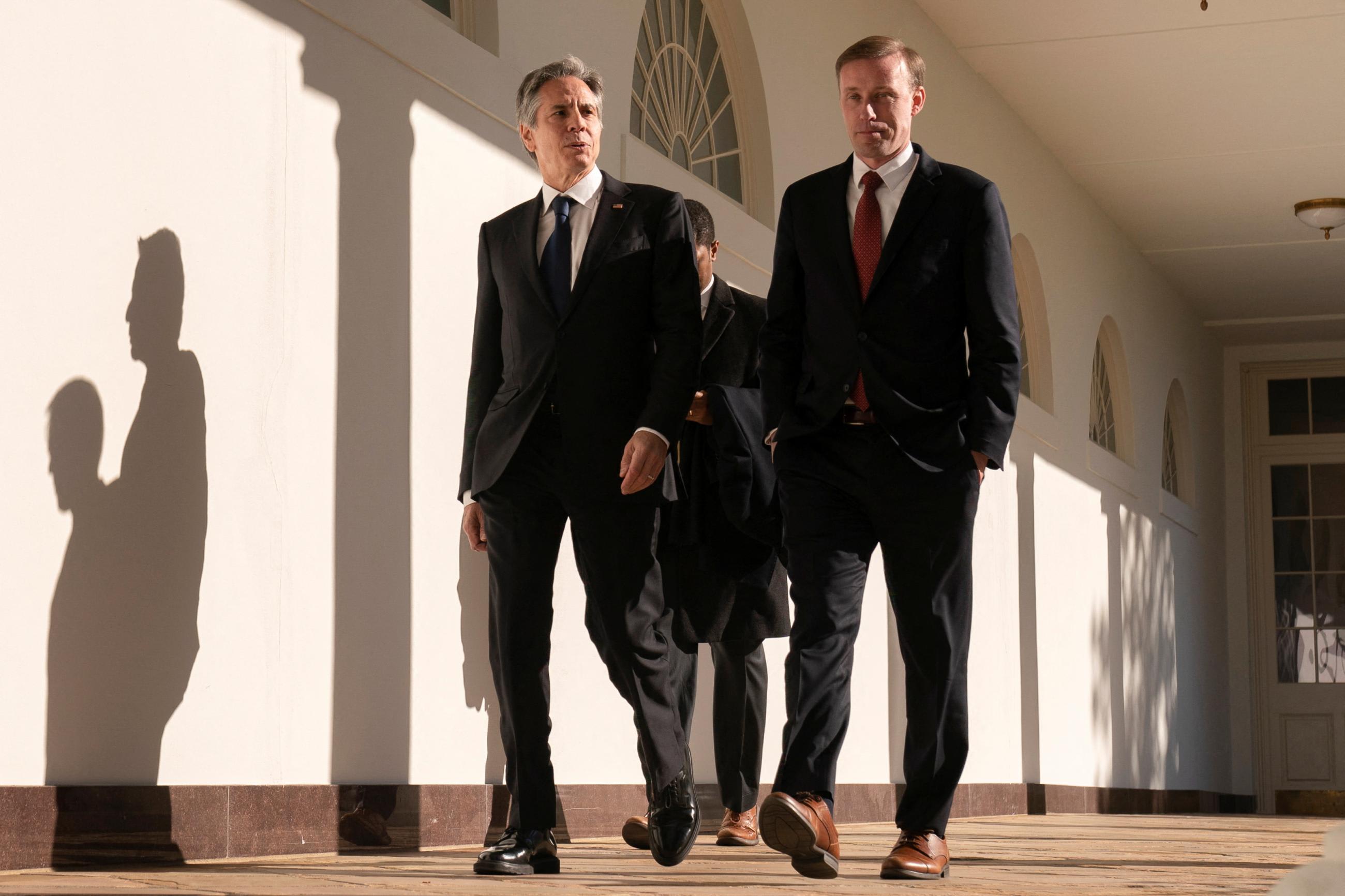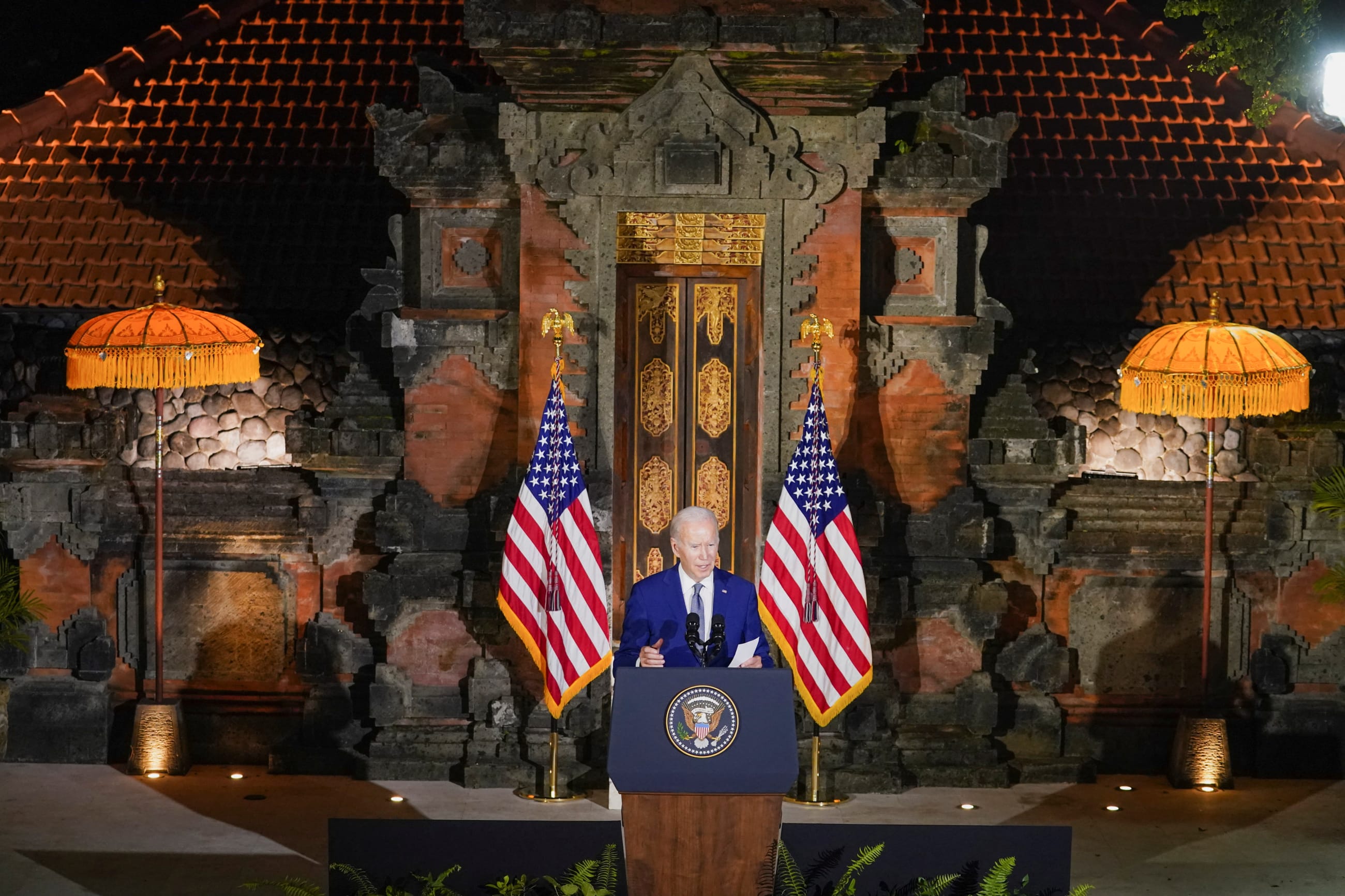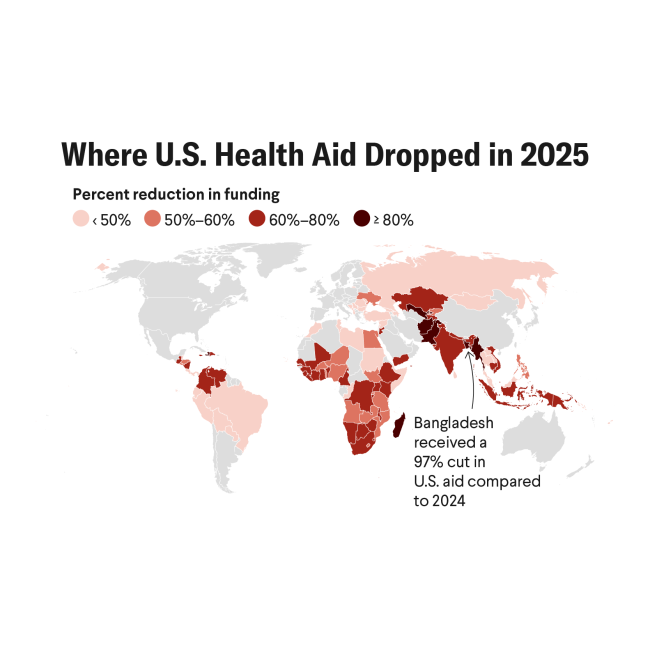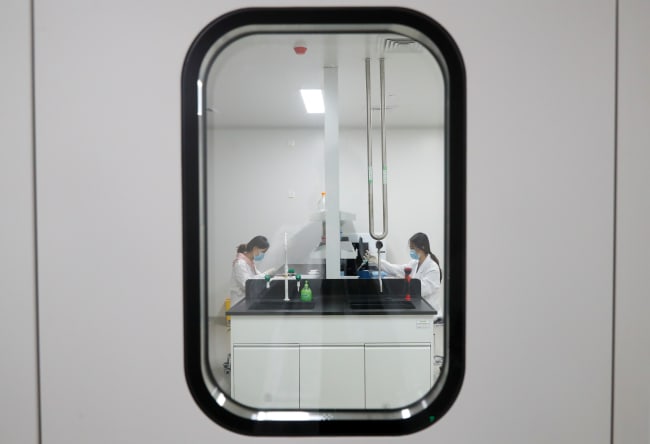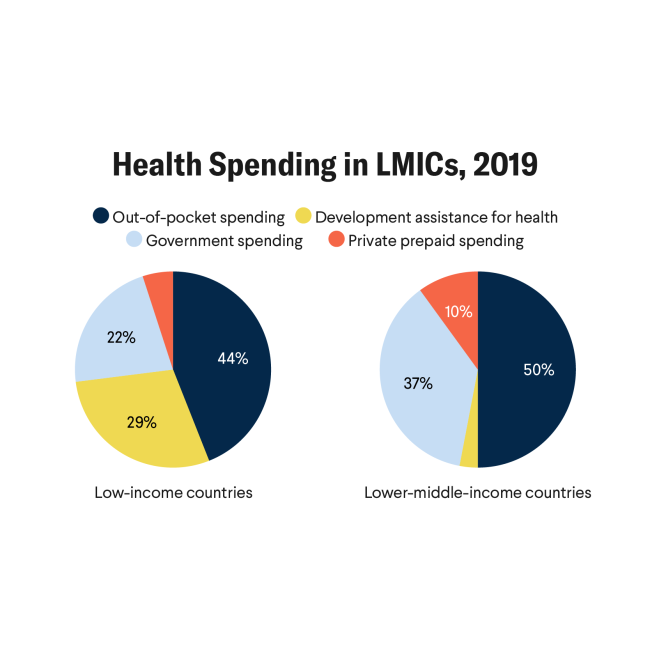In the latest issue of Foreign Affairs, U.S. National Security Advisor Jake Sullivan presents the Joe Biden administration's "foreign policy for a changed world" that transforms how the United States "thinks about power." Sullivan argues that the "sources of American power" are a strong economy that "works for all Americans and is free of dangerous dependencies," alliances that manage "competition in an age of interdependence and transnational challenges," and a military capable of "deterring and responding to great-power aggression."
Sullivan notes that the United States "led the way on global health" when, after the Cold War, it faced "no peer competitor and sought to enlarge the U.S.-led rules-based order and establish patterns of cooperation on critical issues." However, that phase "is definitively over." A "new foundation of American strength" is needed to navigate intensifying geopolitical competition, unraveling economic interdependence, and worsening transnational threats.
Sullivan's article raises difficult questions about how global health fits into a U.S. foreign policy designed for a divided, dangerous world. In the post–Cold War period, the United States exhibited global health leadership as "vital muscles atrophied" across each source of U.S. power. Apparently, such leadership did little for the U.S. economy, alliances, and military capabilities. The emphasis on strengthening the sources of American power requires probing whether global health activities can contribute to that strategic goal.
Grim analyses of U.S. health indicators highlight failures to invest in domestic public health
The Domestic Economy
Sullivan explains why economic strength is a source of American power. He recalls the "importance of investing in economic vibrancy at home" during the Cold War through "public investment, including in R&D and in strategic sectors." Such investments dissipated after the Cold War, leaving the economy, manufacturing, and "hollowed out" communities vulnerable to, among other things, supply-chain dependency on Chinese-dominated foreign markets. U.S. policies failed "American workers and the planet." Sullivan touts the Biden administration's investments in economic infrastructure and innovation, including for clean energy, and in building secure supply chains for medicine, biotechnology, and other sectors.
Sullivan's critique of post–Cold War economic policy casts a shadow on U.S. global health engagement. Such engagement was disconnected from the domestic economy and did not adequately address climate change. COVID-19's impact on U.S. population, economic, and fiscal health exposed decades of neglect on pandemic preparedness. Grim analyses of U.S. health indicators highlight failures to invest in domestic public health. Following Sullivan, that reality suggests that the U.S. government should prioritize investments in domestic public health to help restore economic strength as a source of American power.
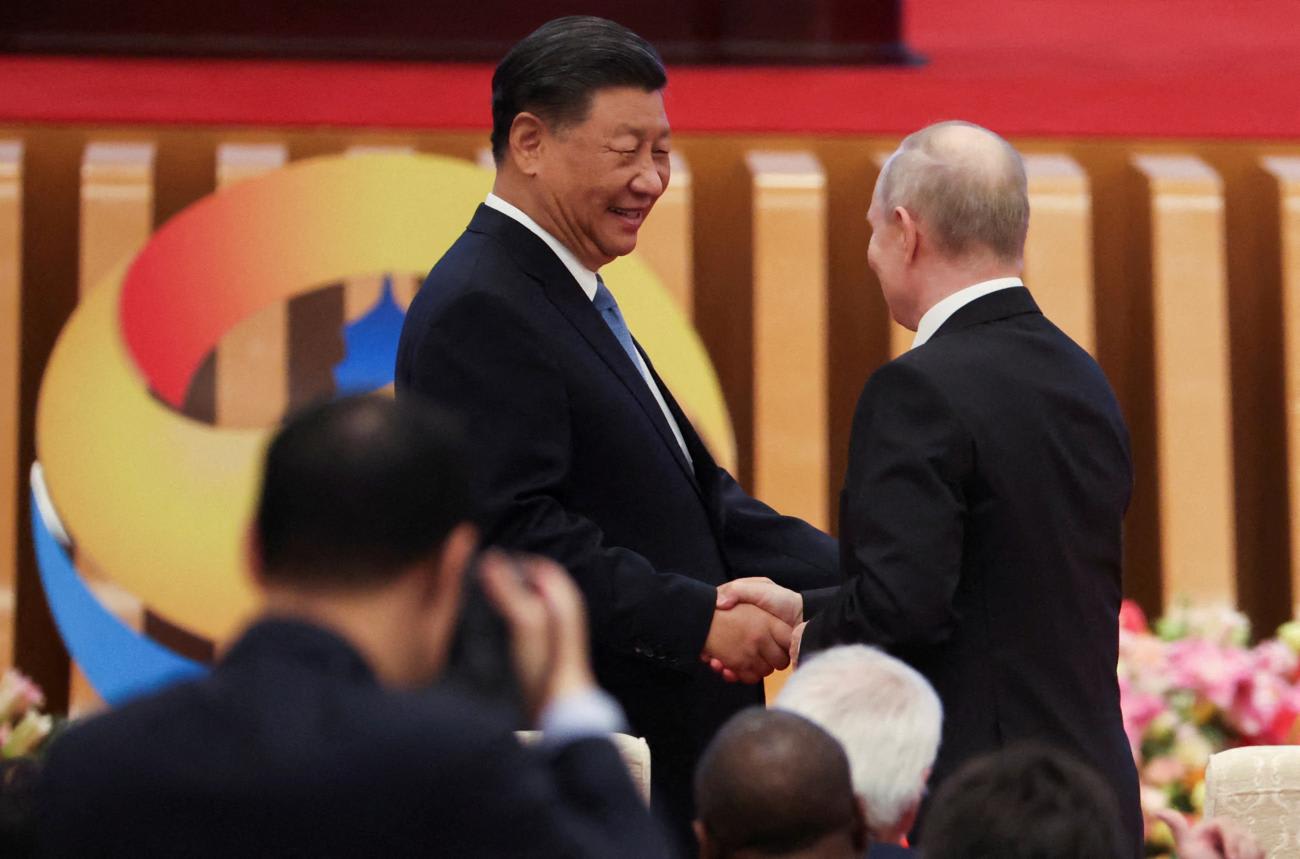
Alliances and Partnerships
The second source of American power involves alliances and partnerships with other countries. Sullivan notes the historical importance of such relationships but asserts that many "were built for a different era" and do not "offer the world, especially the global South, a better value proposition" than what rival powers, particularly China, bring to the table. As a result, the United States should modernize alliances and partnerships to deliver an improved value proposition as a "vital pillar of a new foundation of American strength."
Sullivan devotes the most attention to U.S. global health efforts when discussing alliances and partnerships and the need for a better value proposition in competing with rival states. The United States created and supported relationships through, for example, the President's Emergency Plan for AIDS Relief (PEPFAR) and the Global Fund to Fight AIDS, Tuberculosis, and Malaria (Global Fund). China and Russia never mounted anything equivalent. But, according to Sullivan, it is the United States—not its rivals—that should "deliver a better value proposition" to compete in the Global South despite decades of unprecedented global health commitments that have saved millions of lives in developing nations.
Clearly, PEPFAR, the Global Fund, and other initiatives have not delivered competitive value propositions in a geopolitical world. Why has unrivaled global health involvement failed to produce advantages for the United States in competing for influence in the developing world? Part of the answer arises from the changing development needs of developing countries that China targeted with its infrastructure-focused Belt and Road Initiative. Sullivan acknowledges that the United States "lagged behind in large-scale infrastructure investment in developing countries" but is now competing with China in this arena.

Sullivan's description of new alliances and partnerships created by the Biden administration underscores a shift in thinking. He highlights new collective action efforts that include health within a larger set of objectives, including the G7 Partnership for Global Infrastructure an Investment, the Quadrilateral Security Dialogue, and a coalition involving the United States and India, Israel, and the United Arab Emirates (I2U2). Sullivan cautions that "delivering a better value proposition is a work in progress." Whether these new mechanisms deliver meaningful health results should be analyzed as foreign policy approaches to global health evolve.
Deterring and Responding to Great-Power Aggression
The third source of American power is the ability to deter and respond to great-power aggression. Sullivan admits that United States allowed its defense and military capabilities to weaken and was slow to recognize the aggression threat. He outlines how the Biden administration is responding to Russian aggression in Ukraine and deterring Chinese ambitions concerning the South China Sea and Taiwan. Its responses include strengthening the U.S. military, modernizing the defense industrial base, expanding NATO, and establishing the Australia, United Kingdom, and United States (AUKUS) security partnership.
Global health has little, if any, relevance for that source of American power. U.S. global health leadership did not deter Russian aggression against Ukraine or provocative Chinese behavior in the South China Sea and against Taiwan. The most effective responses to such aggression and behavior require robust defense and military capabilities.
Global health engagement could play a role different from deterring and responding to aggression by helping rival states "manage competition to reduce tensions and find a way forward on shared challenges." Proposals to use global health cooperation in this manner have been made. Sullivan does not embrace that approach in discussing how to stabilize U.S.-China relations, which perhaps reflects geopolitical frictions between the two over COVID-19 and climate change. With China and Russia, the "risk of geopolitical accidents" is most serious in the military realm, where global health diplomacy is not fit-for-purpose.
According to Sullivan, it is the United States—not its rivals—that should "deliver a better value proposition" to compete in the Global South
The Sources of American Dysfunction
Anchoring U.S. foreign policy for a changed world in the sources of American power proves sobering for global health activities. The need for a stronger, more secure economy calls for domestic infrastructure, innovation, manufacturing, supply chain, and public health reforms. U.S. global health activism did not produce a competitive value proposition when rivals offered developing countries economic investments and security support. Global health diplomacy has no role in deterring and responding to great-power aggression.
Such weak connections with the sources of American power raise difficult questions concerning how the United States should adjust its global health policies amid geopolitical competition, economic fragmentation, and transnational threat proliferation. Sullivan asserts that the United States should revisit "long-held assumptions if we are to leave America stronger"—an admonition that also applies to global health policy. He warns against seeing the world primarily through the "prism of geopolitical competition"—a temptation evident in claims, including from the Biden administration, that Congress should reauthorize PEPFAR for geopolitical reasons.
The challenge, however, is greater than Sullivan's analysis suggests. In an article following Sullivan's piece in Foreign Affairs, former U.S. Secretary of Defense Robert Gates scrutinizes the "breakdown in the decades-long bipartisan agreement with respect to the United States' role in the world." The breakdown has been clear in global health through domestic polarization over COVID-19, climate change, development aid, and PEPFAR's reauthorization.
Sullivan's ideas for linking global health engagement with the sources of American power deserve exploration beyond my word-limited musings. Whether that endeavor can survive America's dysfunctional politics seems, at present, improbable.
